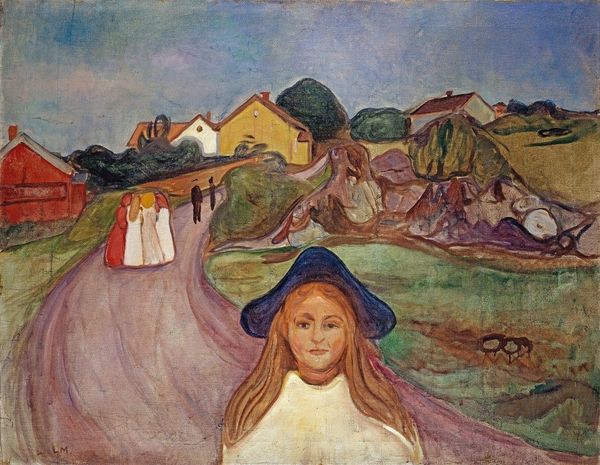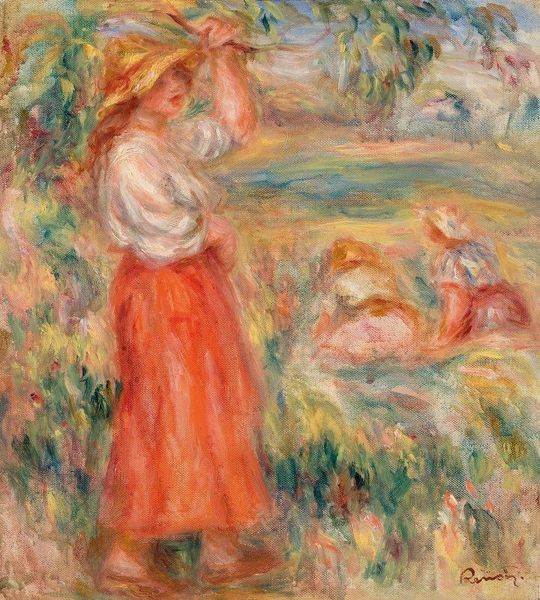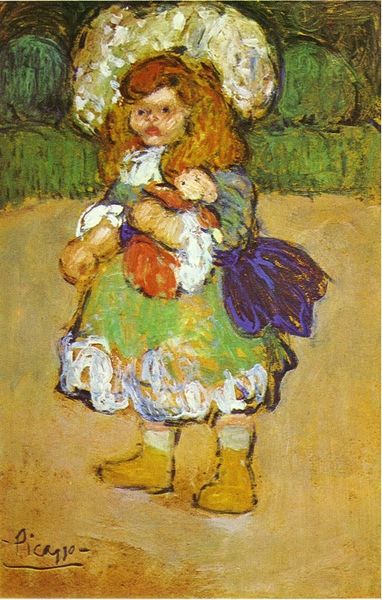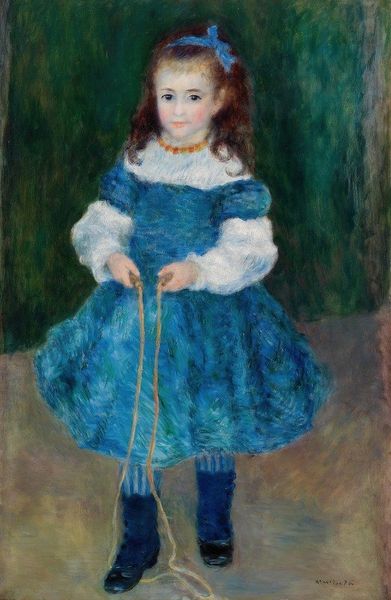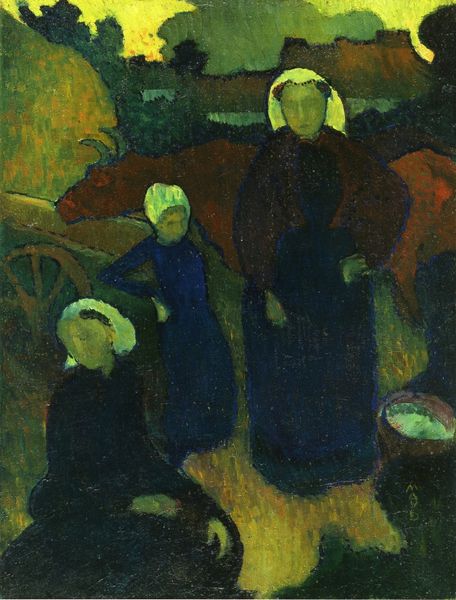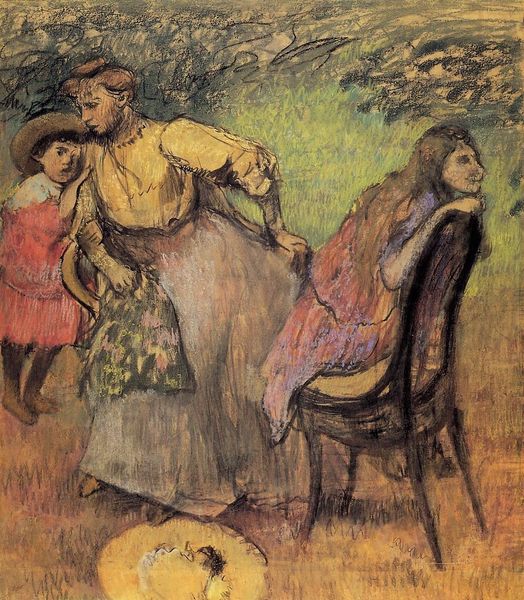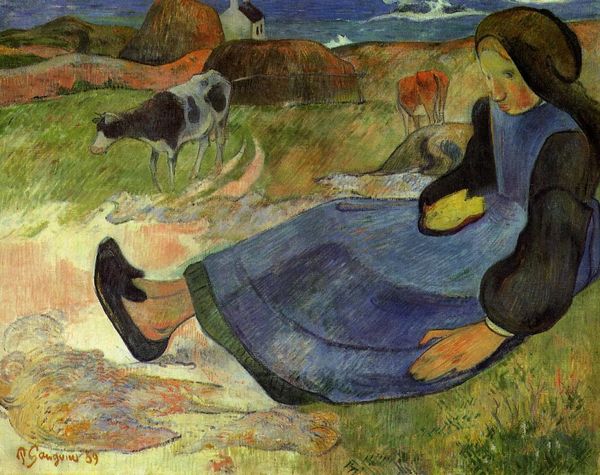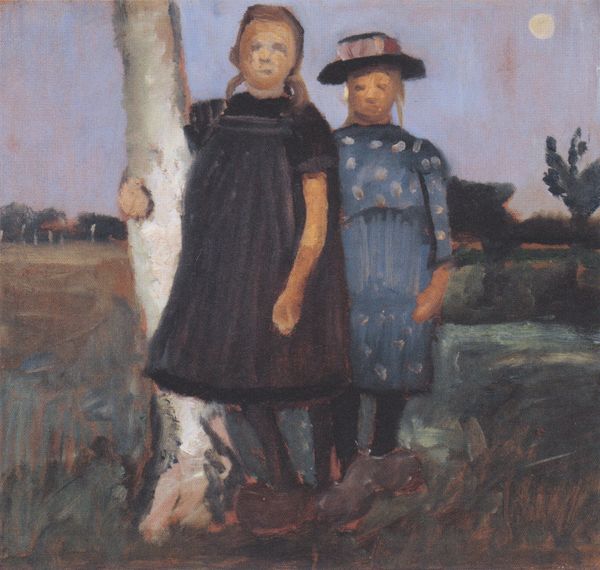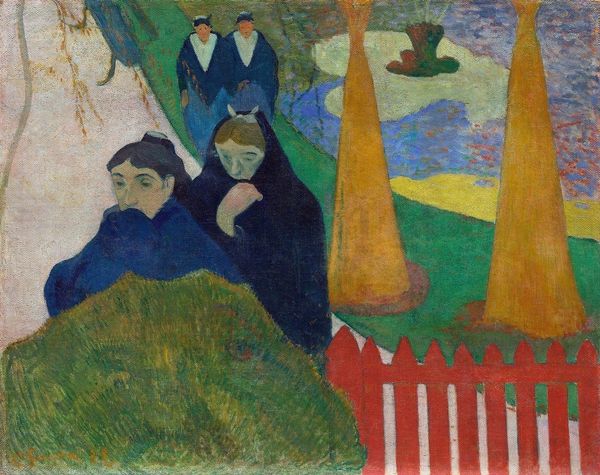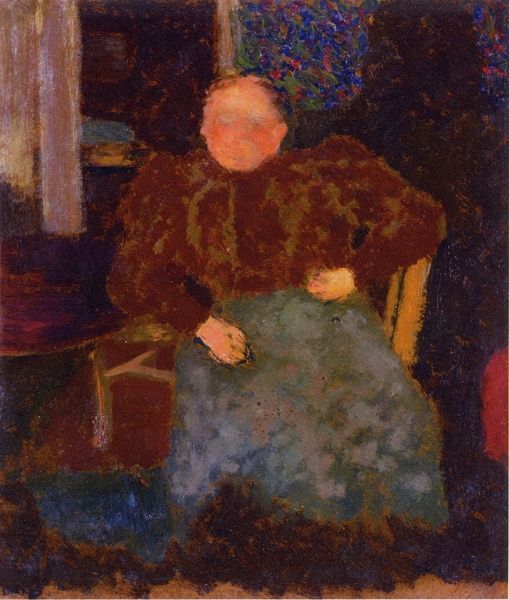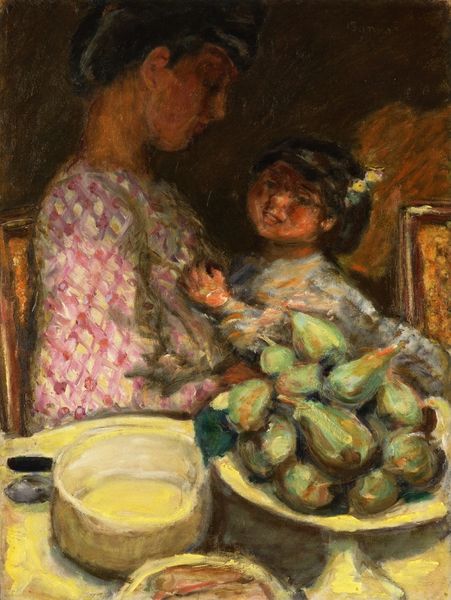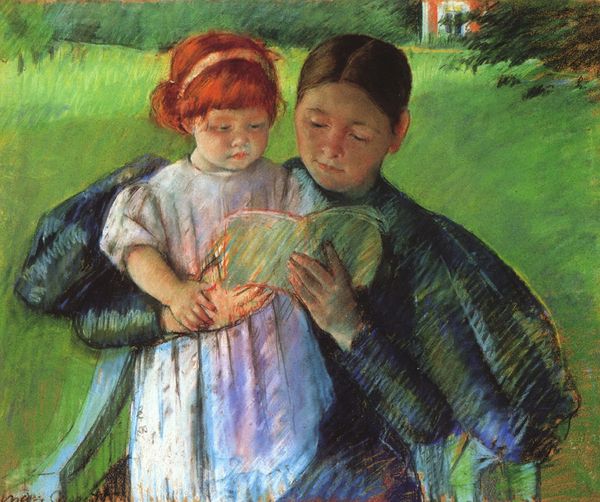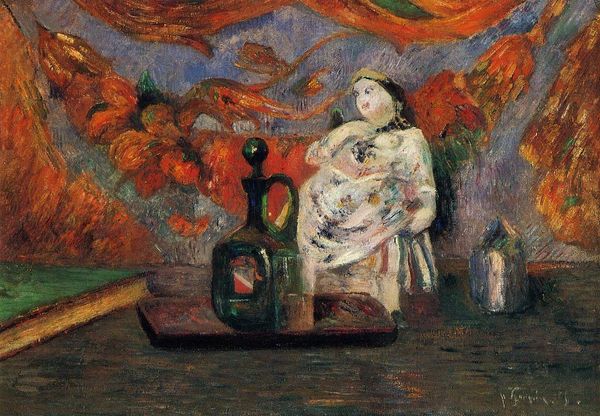
oil-paint, impasto
#
portrait
#
gouache
#
garden
#
oil-paint
#
landscape
#
figuration
#
oil painting
#
impasto
#
child
#
expressionism
Dimensions: 35.7 x 35.7 cm
Copyright: Public domain
Editor: Paula Modersohn-Becker’s “Girls in the Garden with Glass Ball (Elsbeth),” from 1902, renders its subject in thick strokes of oil paint. It almost feels dreamlike in its slightly blurred forms, particularly in the glass ball reflection. What strikes you about this painting? Curator: The positioning of Elsbeth next to a spherical garden ornament creates a compelling dynamic, doesn’t it? Modersohn-Becker seems acutely aware of the garden as a constructed space, both beautiful and potentially confining. In this context, a young girl in a bonnet assumes the position of an object, yet she resists, or do you feel like she is complicit with it? Editor: It seems like she is simply a subject caught in a specific cultural lens, unaware of its confines. Curator: Exactly! Think about the historical role of women, often relegated to the domestic sphere, much like a decorative object within a garden. This painting, viewed through that lens, could subtly critique the limitations placed upon women during that era. Modersohn-Becker herself sought artistic freedom in Paris against prevailing expectations. Editor: That makes the composition choices much more meaningful. Curator: The slightly unsettling flatness and simplified forms, characteristic of early Expressionism, serve to amplify the symbolic weight of the image. It pushes the image away from being just a genre picture or sweet rendering of childhood. The impasto also has the effect of calling your attention to it as a painted surface. Editor: So the roughness isn’t a failing, it’s a way to say something more. It’s about calling attention to the socio-political context and limitations experienced by women artists at the turn of the century. Curator: Precisely. Modersohn-Becker gives us something beautiful to consider while posing complex questions. Editor: I now see this as less sentimental, and more like an important social commentary in disguise.
Comments
No comments
Be the first to comment and join the conversation on the ultimate creative platform.
